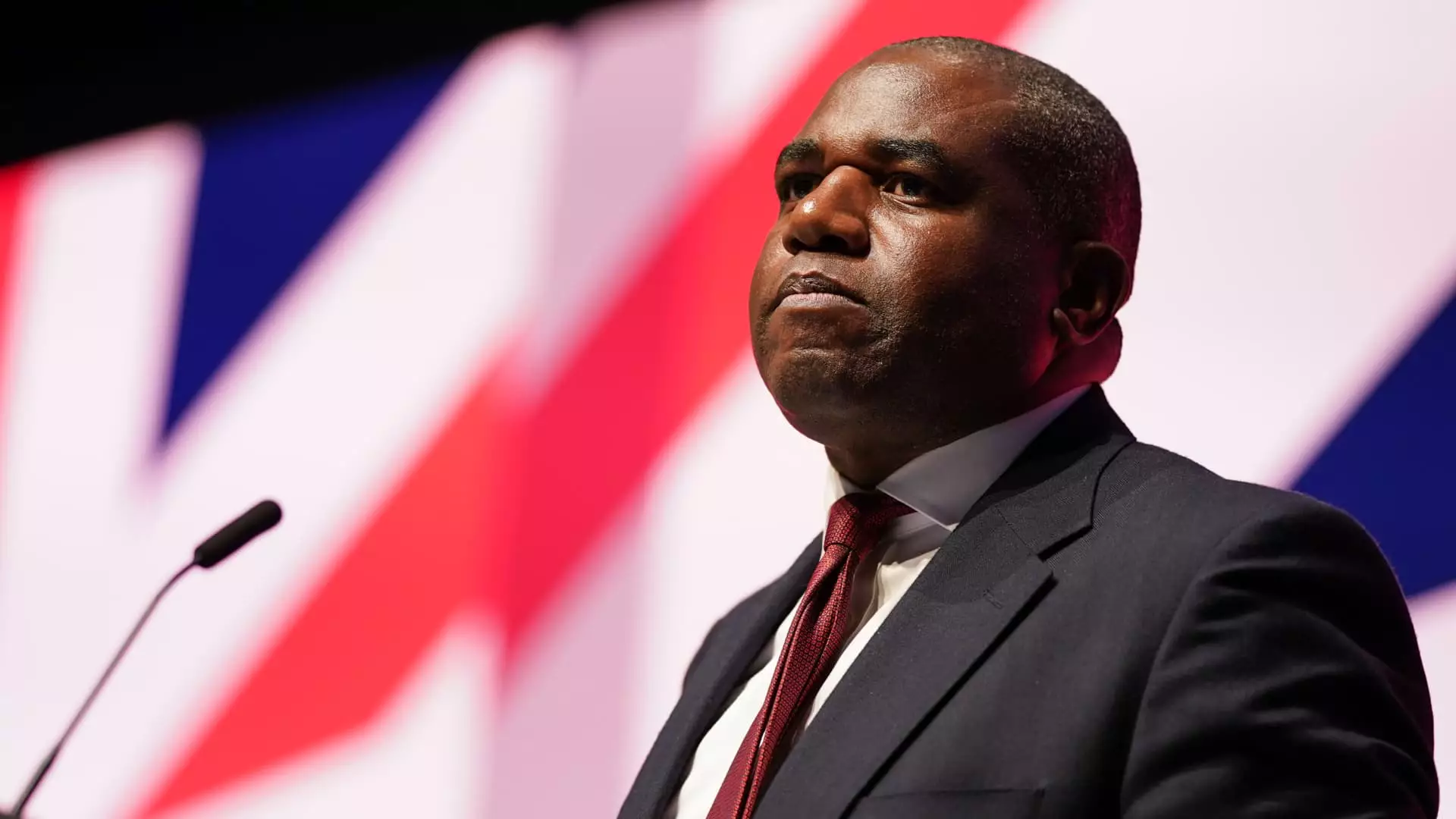In a significant move that has drawn international attention, British Foreign Minister David Lammy recently announced the suspension of 30 out of approximately 350 arms export licenses to Israel. This decision arises from growing concerns regarding the potential misuse of these arms, particularly in the context of the ongoing conflict with Hamas in Gaza, which could lead to serious humanitarian violations. Lammy emphasized that this suspension does not equate to a total embargo but reflects a specific apprehension about certain licenses that might contribute to violations of international humanitarian law.
The backdrop of this suspension is the complex and often turbulent nature of Israeli-Palestinian relations. As the conflict escalates between Israel and Hamas, devastating consequences for civilians in the Gaza Strip have come to the forefront of global discourse. Lammy’s acknowledgment of the “clear risk” posed by the licensed arms highlights the moral responsibilities that accompany the sale of military equipment. By taking this step, the U.K. aims to balance its historical support for Israel’s right to self-defense with the imperative of adhering to international law and protecting civilians who are often caught in the crossfire.
While this suspension presents a more cautious stance from the U.K., it does not eliminate the broader implications for U.K.-Israel relations. The nuances in diplomatic ties underscore the strain that can arise when military support intersects with international humanitarian concerns. Israel’s foreign ministry has yet to respond officially to the suspension, signaling potential unease. As Israel navigates these political waters, it may face scrutiny from international allies and adversaries alike, especially as calls for a ceasefire intensify amid civilian suffering in Gaza.
Within Israel, the suspension comes at a time when domestic protests regarding Prime Minister Benjamin Netanyahu’s handling of the hostage situation with Hamas are mounting. Hundreds of thousands have mobilized to advocate for a strategic resolution, highlighting the societal divisions surrounding the ongoing conflict. Internationally, pressure is mounting on the Israeli government from various countries and organizations urging a ceasefire, which further complicates the geopolitical landscape.
The U.K.’s decision to suspend select arms export licenses reflects a broader narrative of accountability in international relations, emphasizing the necessity for ethical considerations when engaging in arms trade. Amidst a climate of violence and humanitarian crises, it is crucial for countries to assess their roles and responsibilities in either perpetuating conflict or fostering peace. As the situation develops, it will be vital for the U.K. and other nations to navigate these complexities with care, ensuring that their policies promote not only state security but also human rights and dignity. In doing so, they may contribute to a more sustainable resolution to the longstanding and tragic conflict between Israel and Hamas.


Leave a Reply